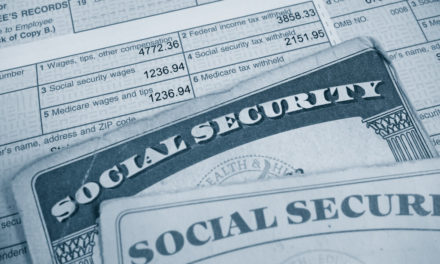Getting the most out of Social Security should be a common sense goal for most retirees, but with so many options on when to start claiming benefits, it can be easy to make a poor decision that leads to a loss of monthly income from the program.
You can’t even start Social Security until you turn 62, but that’s where it can become a little complicated. What you may not realize is that you aren’t even eligible for your full benefits until you reach your full retirement age (66, 67 or 68 depending on when you were born).
Furthermore, delaying your benefits past FRA means an 8% boost to your Social Security checks for every year past your FRA up to age 70.
Here are some misconceptions about Social Security that you should avoid to get the most out of the program.
1. Rushing to Start Social Security Because You Think It’s Going Away
Social Security is facing some funding issues, and it’s slated to be insolvent by 2035. But that doesn’t mean the program is completely disappearing, it will only cut benefits it doles out by up to 20% if the government can’t figure out a funding solution by then.
Taking benefits right when you turn 62 means your checks will be cut by 30% right off the bat if your FRA is 67. And since the program isn’t slated to actually run out of money, you are just hurting yourself by claiming early without a good reason.
2. Delaying Social Security Benefits Too Long
Plenty of people wait to claim Social Security until they are 70 in order to receive the largest benefits check possible. It can especially help out if you haven’t saved as much for retirement because that 8% annual boost is for your lifetime.
And because the Social Security Administration averages your 35 highest-earning years to calculate your benefits, working until 70 can mean an even bigger check because you may be able to knock off some lower-earning years if you have a better job in your older age.
But don’t wait too long until after 70 because that’s when the SSA will stop accruing those credits you get for delaying past your full retirement age. And they will only pay you six months in retroactive benefits, so filing anytime after turning 70 1/2 means you are just throwing money away.
3. Delaying Spousal Social Security Benefits to Get a Boost
Spousal benefits are meant to help any spouses who don’t have enough work history (or no work history at all). Here are the qualifications per The Motley Fool:
Qualification for spousal benefits is determined by past and present marital status. Generally, the person claiming spousal benefits must be currently married to the primary recipient; former spouses can receive benefits if their marriage lasted 10 years or longer, but there are some restrictions.
Spousal benefits allow someone to collect up to half the amount their spouse receives, and they will be reduced if you start collecting them at 62. But that reduction stops once you reach your full retirement age, and there’s no boost for holding off until 70 like normal Social Security benefits.
So make sure if you plan to delay taking spousal benefits, you start claiming no later than your FRA to ensure you receive as many checks as possible at that maximum benefit amount.
These are just a few strategies to avoid while planning your retirement and deciding when to collect Social Security. Knowing as much as possible can really be a big boon for your golden years.
• You can find all of the latest and most important news about Social Security here on Money & Markets.




